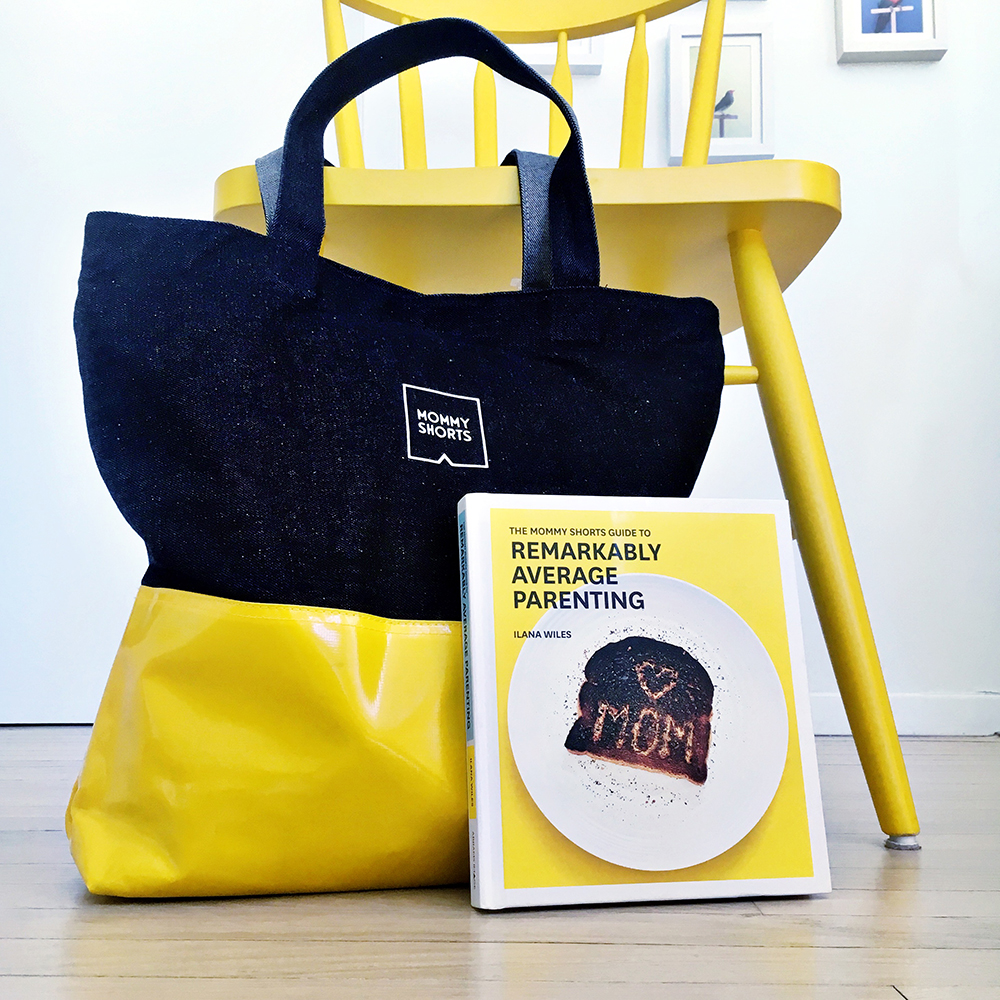This week's question about how to help your kids cope with moving comes from the very funny humor blogger— Kristine of Wait in the Van. Question is serious, of course.
I have two boys: one is just over four and the other, just over two. We have lived in the same area of New York since they were born, which means they've always been close to Grandma, Poppy, and friends/family. However, my husband is a Marine and we're all moving in a few months to Texas.
Aside from the move itself, I'm concerned about how this will affect my boys–specifically my eldest. They both see Grandma at least once a week and are very attached to their Poppy. In fact, they tell me that they miss them even if it's only been a few days since our last visit. (::heart breaking::) So, my question is: what should I be doing to ease this transition, and what type of behavior can I expect?
So far, I've told them both that we'll be moving to "a new house". They also know that all our stuff (and the cats!) will be coming with us. We plan to Skype once we're down there. However, one day, my eldest told me we were going to "bring Grandma, too!", and I had to explain that she'd be staying at her house. He was clearly disappointed by this, but I'm sure he doesn't grasp the true concept of distance and how infrequently we'll be seeing them. I tell him it's okay to feel sad. Then I usually remind him that we'll all be together and that it will also be an exciting adventure. I wonder if the sadness will grow once we're in our new home, and what else I should be doing to help him through this upheaval.
Thanks for your help!
Kristine
Dear Kristine,
Young children have the easiest time adjusting to moving because they do not yet understand the changes involved and therefore cannot anticipate what moving will be like – good or bad. Instead, they look to parents for reassurance and guidance to determine whether to perceive the move as positive or negative.
Children are very sensitive to their parents’ emotions, especially during times of change. Therefore, it is critical for parents of young children to manage their own stress, anxiety and feelings about moving so that children do not pick up on subtle cues that moving may be unpleasant, scary, or bad.
However, despite attempts to make moving sound fun and exciting, children may ask difficult questions and express mixed feelings about the move, especially if it involves significant changes such as moving away from family and friends who visit often.
At such times, allow your children to express mixed emotions and provide them with reassurance and understanding, but also emphasize the positive aspects of the move. Reassure them that even though some things will be different (such as their room or neighborhood), some things will be better after the move too (e.g., new friends, playground, fun places to go in the area, etc.).
Even if your child is unhappy about the move, remain positive. Your positive attitude will go a long way in how well your child will ultimately adjust to the move.
Below are some tips that will help prepare your child for moving and make the transition easier:
Keep explanations clear and simple: Children don’t need lengthy explanations about why the family is moving. Stick to the facts and provide developmentally appropriate information in a positive light. Give a simple statement about why you are moving, what moving means, and what the new home and location will be like.
Use pictures to familiarize your children with the new area: Young children often need to see things to understand them. Put together some pictures of the new house, location, and places in the neighborhood that your family will probably visit regularly. Show them to your children with excitement and point out the similarities and differences between their current area and the new area. Do your research and make sure to talk about places that your child will like in the new area such as special parks, a nearby pool, or playground.
Create a social story: Put together a simple story about the move using pictures. Include what will happen before, during, and after the move. PowerPoint is a great tool for doing this because you can easily insert text and real pictures. Print one slide per page to create your own book or view the story with your child on the computer.
Prepare your children using books or through play: Read age appropriate books about moving (e.g., We're Moving! By Heather Maisner or The Berenstain Bears' Moving Day
by Stan Berenstain and Jan Berenstain). Buy some toys that can by used to “act out” the move such as a toy lego family, toy trucks, a plane, and doll house furniture (e.g. LEGO DUPLO Doll Family Set
and Maple Landmark Classics Moving Truck
). Show your child through play what moving will be like, discuss and ask your child how the pretend family feels, and emphasize how fun and exciting moving is for a family.
Packing: Be careful when packing your children’s things. Young children are more likely to think that you are throwing their toys away when you put them in boxes. Make sure to explain that you are keeping their toys safe in the boxes so that they can play with them when they get to their new home. You may also want to pack a smaller bag or box with your children’s prized possessions for them to take with them on the plane or in the car during the move.
Avoid changes: Try to keep things the same as much as possible to ease the transition and maintain a sense of familiarity and consistency. If possible, keep the same furniture and try to set up the room or nursery in the same way. Keep your children’s routines and schedules the same to the extent possible. Avoid making any big changes around the move such as potty training or moving from a crib to a bed.
Moving Day: Try to arrange for your children to stay with a relative, friend, or sitter on moving day so that they do not get unnecessarily anxious by seeing all of the changes firsthand. When you arrive at the new home, try to arrange the children’s rooms first so that they can feel a sense of comfort in familiar surroundings right away.
Coping with Distant Relatives: Reassure your children that although Grandma and Poppy (and other relatives) may live further away from you now, they will still be able to see them and speak to them everyday. Incorporate important caregivers and relatives into your daily routine and make them feel present. Create a picture album with their pictures to look at and have your children speak to them on the phone or on Skype on a regular basis. You can also buy a recordable book so Grandma and Poppy can record themselves reading to them and they can listen to them each day (e.g., Hallmark "All The Ways I Love You" Recordable Book).
If you prepare your children for the move and stay positive, your children will likely adjust to the move more easily and may even be excited for it; however, many children do exhibit challenging behavior in response to significant transitions. The most common reactions to significant changes in younger children is regression to immature behaviors such as thumb sucking, wetting the bed, baby talk, clinging to parents, difficulty sleeping or eating, and an increase in attention seeking behaviors (positive and negative).
If your children exhibit any of these behaviors, it is important to be sensitive to their needs, recognize that their behavior is normal given the circumstance, and try to understand what their behavior is trying to communicate. Most of the time challenging behavior is temporary and will decrease in a few weeks or months after the move.
It is also important to note that not all changes that coincide with moving are negative. Moving can bring families closer together and can help children develop resilience as they learn to cope and adjust to a stressful time for the family.
Good luck with the move!
Dr. B
Dr. B has a PHD in school psychology and specializes in early childhood development. If you have a question for Dr. B, please email me by clicking here.


























Great tips as always from Dr. B. When my oldest was 3 we moved 2 hours away from our family. I didn’t make a big deal about it all to her and we had no problems. We did make it a point to visit our family frequently right after the move so that she didn’t miss them too much.
It’s also possible to record Grandma and Poppy on the PowerPoint! All you need is an inexpensive mike and you are good to go.
We moved from NC to VA when my oldest was 2 and our twins were five weeks.
In case something happened to the moving truck, we packed our 2-year-olds most special books and toys, her blankets and clothes in the car so that she would have her things when we arrived if, god forbid, the van didn’t.
Luckily, it did.
We walked our daughter into the house and went directly to her room so that she could walk around in it. We talked about where her furniture would go, which walls we would decorate with the pictures.
We unpacked her room and the twins’ room first so that everything felt settled for them from the very first night.
We stuck to the same nap and sleep schedule and when we woke up the first morning, we started exploring the neighborhood. We found the park, the coffee shop and ice cream store.
The transition was surprisingly smooth and here’s what I took away from it: the children who move have a much easier time adjusting than the friends who stay behind. For my daughter, each day was a new adventure and there was always something new to explore. For her best friend, all of her normal routines remained the same but they missed one crucial element, her dearest friend.
I just did this in the summer of 2009 with the exact same aged children. Believe me, kids are resilient. You will have to make an effort to put yourself out there and meet new people, get play dates, join MOPS, do what you need to to make your kids feel comfortable. And remember, they can sense everything. If you put on a brave face and they see Mommy joining everything..they will feel safe and go with the flow. If you dig your feet in , so will they. Make it very positive or you will have meltdowns and tantrums and that will not be good for anyone. Good luck to you.I;m about to do it again this summer.
This is so hard. I admire, respect and thank our military families so much. So, thank you Kristin and Co.
I once suggested that we could pack my mother-in-law in a trunk so that she could go with us. Strangely no one but me saw any humor in that.
Nor did they laugh when I said I was serious. Damn.
I like the idea about the social story. That sounds like something that would be very effective. I know my kids would love that.
Thank you SO much for your input, Dr. B!
I’m glad to hear that I’m following the right path. I’m remaining positive about this experience (it took me a while to get excited, but I finally am), and we’re even taking the boys down there in a few weeks to look at some houses! The PowerPoint is a great idea I would’ve never thought of. And it’ll be like watching a movie, which (naturally) the boys love.
And thanks for the book recommendations! I was actually in Barnes and Noble the other day looking for exactly something like that 🙂
Wish us luck everyone! Should be an adventure! (<--See?! POSITIVE!) Jack: I told my husband my mom wanted to visit the month after we got settled and he looked at me like I had five heads. The do well, but I suppose he wouldn't be ALL too sad if she lost his address. Heh. 😉
I know that the next time we move, Kate will have a very very hard time with it. So far, she’s been too young to understand. But not now.
I remember those days! My husband was in the Marines until our kids were 5, 3 and 1. We moved 3 times in the time between the eldest being born and his discharge. Two basic things: We packed their play room last (like didn’t touch a thing in it until the final day) and it was the first thing we unpacked. I found play groups (and a church) right away so the kids had new people to get to know. I also agree with one of the early comments about kids reflecting your attitude, so stay as positive as you can. Good luck!
very cute…my son was the same way. He was sucking his thumb in the ultra-sound and all the way until he was 3.
I then just thought I would give up; I figured he isn’t hurting anyone and that was his security blanked. Then I asked his doctor about it and he told me all the bad things that can happen as far as his teeth are concerned & its stops your chin development!
He told me to look at adults with no chin form and that most likely means they sucked the them…
So I searched online and found these pair of gloves…he loved wearing them & after a couple of months he has stopped sucking his thumb!
Here is the site in case anyone else is looking
http://endthumbsucking.com/
Thumbsucking |
Thumb Sucking |
Normally, I like to respond to all my comments but I have nothing to contribute since I have no experience with moving whatsoever. But I’m sure these are all very helpful to Kristine and I thank you for sharing your stories.
Hello,
This is such an excellent post. The information given in the post is so very useful for each and every parent or specially the to-be parents.I am sure many people would be highly benefited from this post.
🙂
I am pregnant 26 weeks pregnant with two toddlers and can tell you – you’re so right! Truly helpful post for every parent!
Agreed